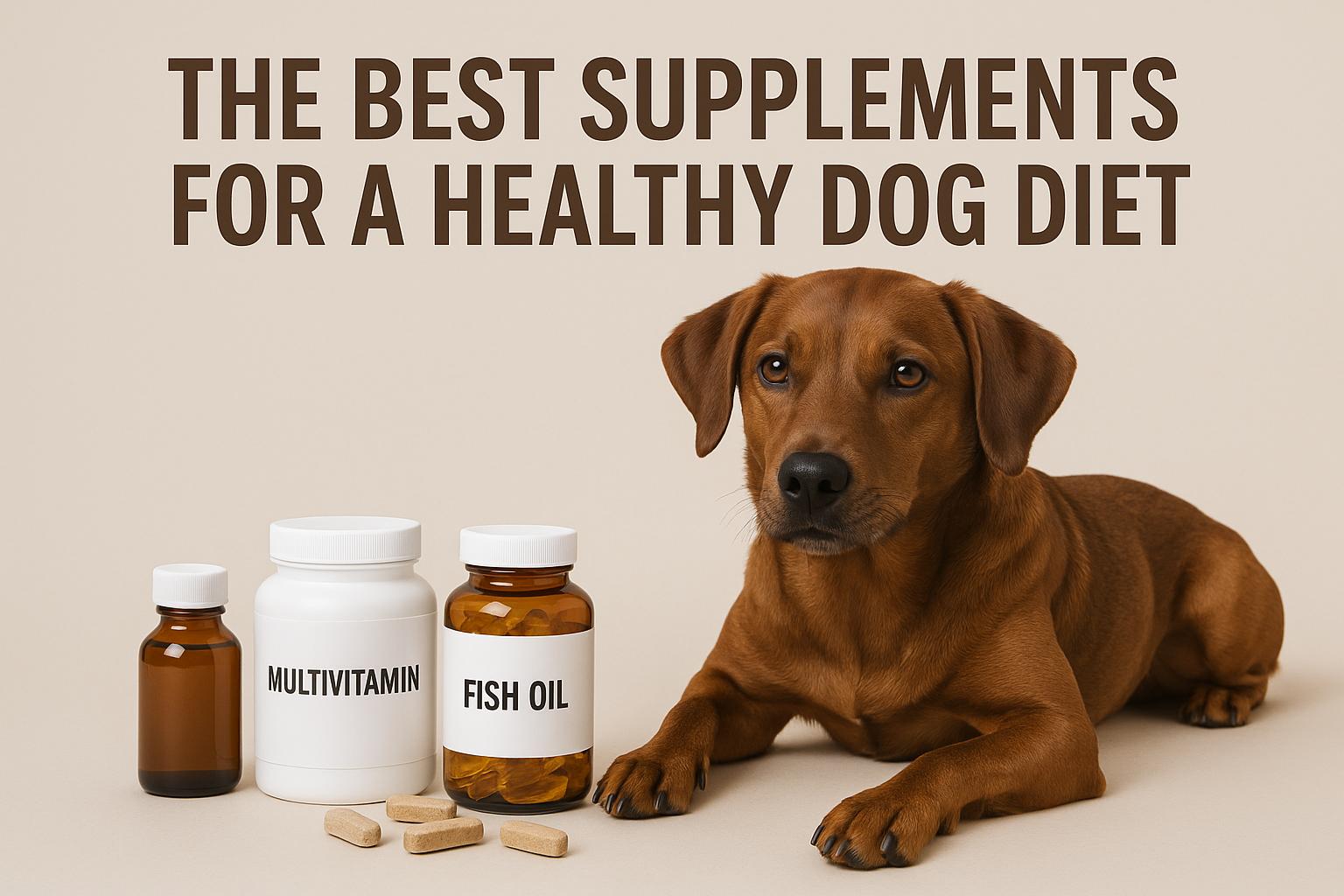
Ensuring that your dog has a healthy diet is crucial for their overall well-being and longevity. While a balanced dog food can provide most of the necessary nutrients, sometimes additional supplements can enhance their health further. Understanding what your dog needs is essential, and it is always advisable to consult your veterinarian before introducing new supplements.
This article will delve into the various supplements available, their benefits, and how they can contribute to your dog’s health. We will examine specific areas such as joint health, skin and coat health, immune system support, and digestive health. With a comprehensive understanding, you can make informed decisions on supplementing your dog’s diet.
Not all dogs require supplements, but they can be beneficial for addressing certain conditions and supporting specific life stages. Supplements can effectively target and improve many health aspects, including joint health, skin and coat condition, immune system, and digestive functions.
As dogs age, they are more susceptible to joint pain and arthritis, conditions that can significantly affect their quality of life. Two supplements often recommended for supporting joint health are glucosamine and chondroitin. Glucosamine is a natural compound found in cartilage, the tough tissue cushioning joints. It plays a crucial role in managing joint discomfort and improving mobility.
Chondroitin, another important component, works synergistically with glucosamine. It helps maintain cartilage elasticity and inhibits the production of potentially damaging enzymes in the joints. Studies have shown that these compounds can help reduce inflammation and promote cartilage repair, vital for maintaining joint health as dogs age.
When selecting supplements for joint health, look for products that contain glucosamine hydrochloride and chondroitin sulfate, as these have demonstrated effectiveness in studies. These compounds are readily available in various formulations including tablets, chews, and liquid forms–making it easy to integrate them into your dog’s diet.
A shiny, healthy coat is often a sign of a well-nourished dog, reflecting not only aesthetic beauty but also overall health. Omega-3 fatty acids, commonly found in fish oil supplements, are beneficial for maintaining skin and coat health. Omega-3s are essential fatty acids that support skin hydration and coat texture by reducing inflammation and promoting skin cell regeneration.
Beyond skin and coat benefits, omega-3 fatty acids contribute to improving cardiovascular health, enhancing cognitive function, and reducing the risk of chronic inflammatory conditions. Thus, incorporating a high-quality fish oil supplement into your dog’s routine can be highly advantageous.
Choose high-quality fish oil supplements that are certified free of heavy metals and toxins. It is prudent to check for brands that source their ingredients sustainably, ensuring product safety and quality. Certified products generally undergo rigorous testing to ensure purity and potency, providing peace of mind when supplementing your dog’s diet.
A robust immune system is paramount for your dog’s ability to fend off infections and maintain overall health. To bolster your dog’s immune defense, antioxidant supplements can be particularly beneficial. Antioxidants work by neutralizing harmful free radicals, thus preventing cellular damage and supporting immune health.
Vitamins C and E are potent antioxidants known for strengthening the immune response. They play essential roles in enhancing immune cell functions, contributing to overall vitality and longevity in dogs.
Opt for a comprehensive antioxidant supplement that includes both vitamins C and E. It’s also wise to consider products containing additional immune-boosting substances like selenium and beta-carotene. These compounds are often blended into convenient multivitamin supplements, making it easy to integrate into your dog’s health regimen.
Maintaining a healthy digestive system is fundamental for nutrient absorption and overall well-being. Probiotic supplements are beneficial for balancing your dog’s gut flora, promoting optimal digestion, and enhancing nutrient uptake.
Probiotics are especially useful for dogs with sensitive stomachs or those recovering from antibiotic treatments, as they help replenish beneficial bacteria in the gut. By supporting a healthy intestinal microbiome, probiotics contribute significantly to reducing digestive discomfort and preventing gastrointestinal issues.
Look for probiotics containing multiple strains of beneficial bacteria and ensure they are specifically formulated for dogs. The efficacy of a probiotic supplement often depends on its bacterial diversity, ensuring comprehensive digestive support for your pet.
While supplements can be beneficial, they are not a substitute for a balanced diet. It is critical to ensure that you provide your dog with high-quality dog food and fresh water, meeting their basic nutritional needs each day. If considering adding supplements to their diet, it is best to discuss this with your veterinarian to tailor them to your dog’s specific needs and circumstances.
For further reading on dog nutrition, you may visit organizations like the American Kennel Club or consult resources from your local pet health experts. Understanding the nuances of your dog’s health and nutritional requirements is an ongoing process, and staying informed ensures you provide the best care for your canine companion.